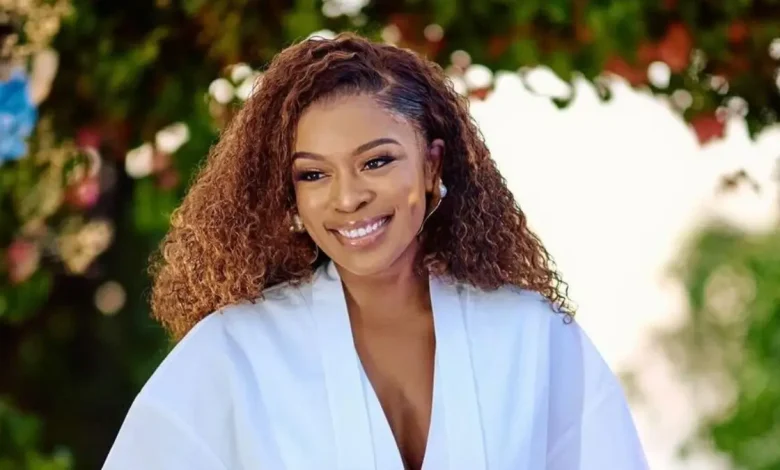Celebrity Feud: Simphiwe Dana Accuses Nomzamo Mbatha of Hairstyle Appropriation

Table of contents
- Simphiwe Dana’s Bold Accusation Against Nomzamo Mbatha
- Understanding the Hairstyle in Question: Afrocentric Cultural Identity
- Nomzamo Mbatha’s Role in Shaka iLembe Hairstyle Choices
- The Production Team’s Silence on the Allegations
- Social Media Reaction and Public Debate
- The Fine Line Between Appreciation and Appropriation in Afrocentric Styles
- Historical Hairstyles and Shared Cultural Ownership
- Simphiwe Dana’s Advocacy for Creative Integrity and Cultural Respect
- Implications for South African Entertainment Industry Practices
- Dialogue and Respect in Afrocentric Creative Expressions
South African singer Simphiwe Dana recently sparked major online conversations by accusing actress Nomzamo Mbatha and the Shaka iLembe production team of appropriating her signature Afrocentric hairstyles. This dispute shines a light on complex issues around cultural ownership and the recognition of creative contributions in the entertainment industry.

Simphiwe Dana’s Bold Accusation Against Nomzamo Mbatha
Simphiwe Dana voiced her frustration on social media, accusing the filming and promotion team of Shaka iLembe of copying her unique Afrocentric hairstyles without giving her credit. She stated, “Honey, there’s a difference between appreciation and appropriation,” and described the act as “foul, appropriative and exploitative.” Although she later deleted the post, it sparked meaningful discussion and had a strong impact on the public conversation.
Understanding the Hairstyle in Question: Afrocentric Cultural Identity
The hairstyle stands as a strong symbol of Afrocentric pride. Simphiwe Dana has made such styles part of her brand and identity. This raises questions about where respect ends and appropriation begins. When others copy without credit, it blurs lines and causes conflict.
This dispute highlights struggles in creative industries. Showing Afrocentric styles helps share African heritage. However, Dana stresses the need for proper credit when her style influences others. Deciding when admiration turns into exploitation is vital for cultures tied to identity.
The debate goes beyond personal claims to address cultural ownership issues. It warns against borrowing without credit, especially given history of marginalization. Thus, it pushes for respectful cultural appreciation. This balance builds respect and deepens cultural exchange.
Nomzamo Mbatha’s Role in Shaka iLembe Hairstyle Choices
Nomzamo Mbatha, a leading actress on the popular Mzansi Magic historical drama Shaka iLembe, is known for her elegant representation of historical African characters. The hairstyling choices on set and during promotional events often reflect cultural symbolism, but Dana alleges Mbatha did not credit the influence of her personal style.
The Production Team’s Silence on the Allegations
As of the latest updates, neither Nomzamo Mbatha nor the Shaka iLembe production team has publicly responded to Dana’s claims. This silence adds fuel to the ongoing debate, leaving fans and observers wondering about the behind-the-scenes decision-making on styling and acknowledgments.
Social Media Reaction and Public Debate
The feud quickly ignited lively online discussions about cultural appropriation vs cultural appreciation. While some social media users argued that the Afrocentric hairstyles are a shared cultural heritage and not exclusive to Dana, others supported her stance on protecting creative originality and receiving proper credit.
The Fine Line Between Appreciation and Appropriation in Afrocentric Styles
Simphiwe Dana herself emphasized this distinction: “You’re not the only one. I’m fed up,” she stated, underscoring her frustration with repeated instances of perceived style theft without recognition. The debate highlights how artists seek respect not only for their work but for their cultural contributions as well.
Historical Hairstyles and Shared Cultural Ownership
Many commenters noted that the hairstyles featured on Shaka iLembe are rooted in history and tradition, worn for centuries by communities across Africa. This challenges claims of exclusive ownership but also stresses the importance of acknowledging influences appropriately in modern media.
Simphiwe Dana’s Advocacy for Creative Integrity and Cultural Respect
Dana has been vocal over the years about protecting her creative and cultural contributions. This incident is consistent with her ongoing calls for respect and recognition in the entertainment industry. She wants her “brand ideas” and cultural expressions honored, not exploited.
Implications for South African Entertainment Industry Practices
This feud brings to the forefront the need for clearer guidelines on intellectual property and cultural heritage within South African entertainment. Proper crediting mechanisms can foster collaboration without diminishing individual contributions or cultural sensitivities.
Dialogue and Respect in Afrocentric Creative Expressions
The ongoing issue prompted by Dana’s accusations encourages a broader dialogue about cultural appreciation, originality, and respect in creative arts. Encouraging open communication among artists, producers, and communities can help prevent similar conflicts and promote unity.
